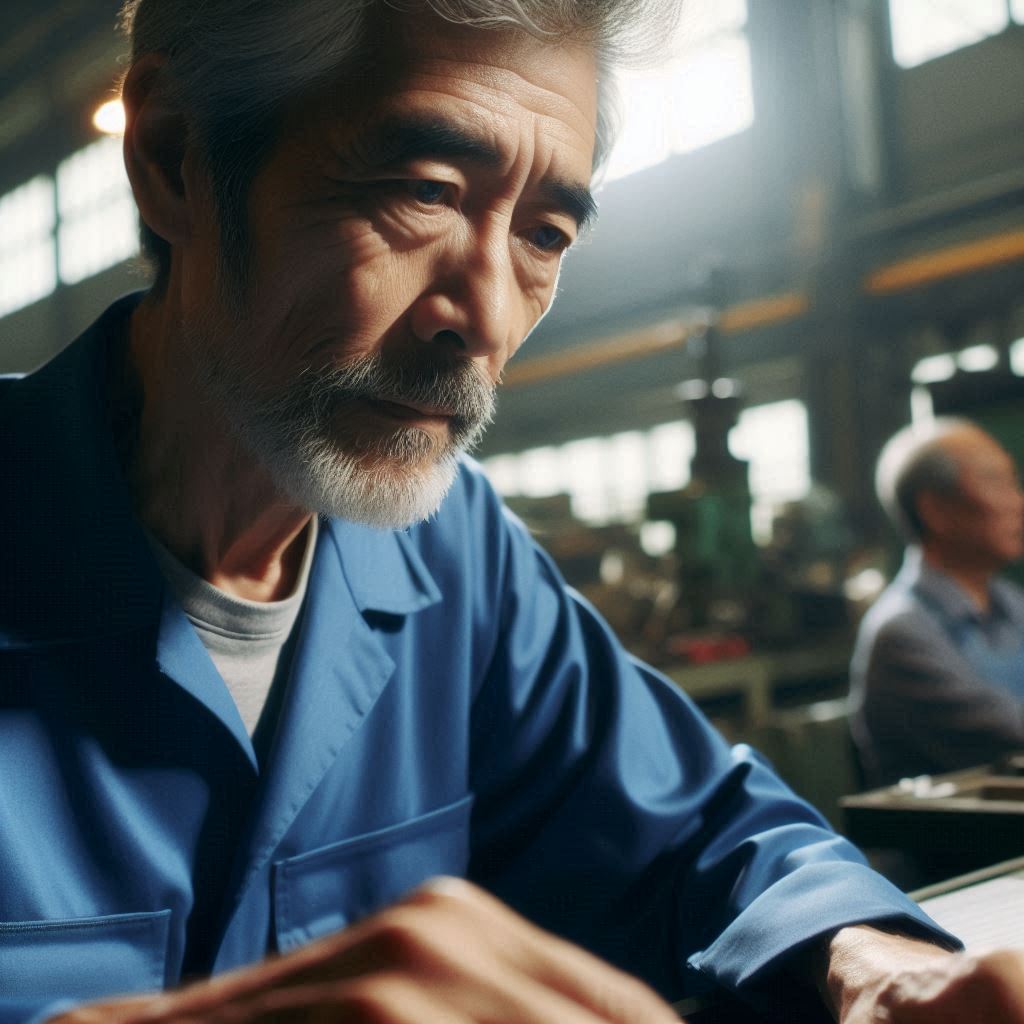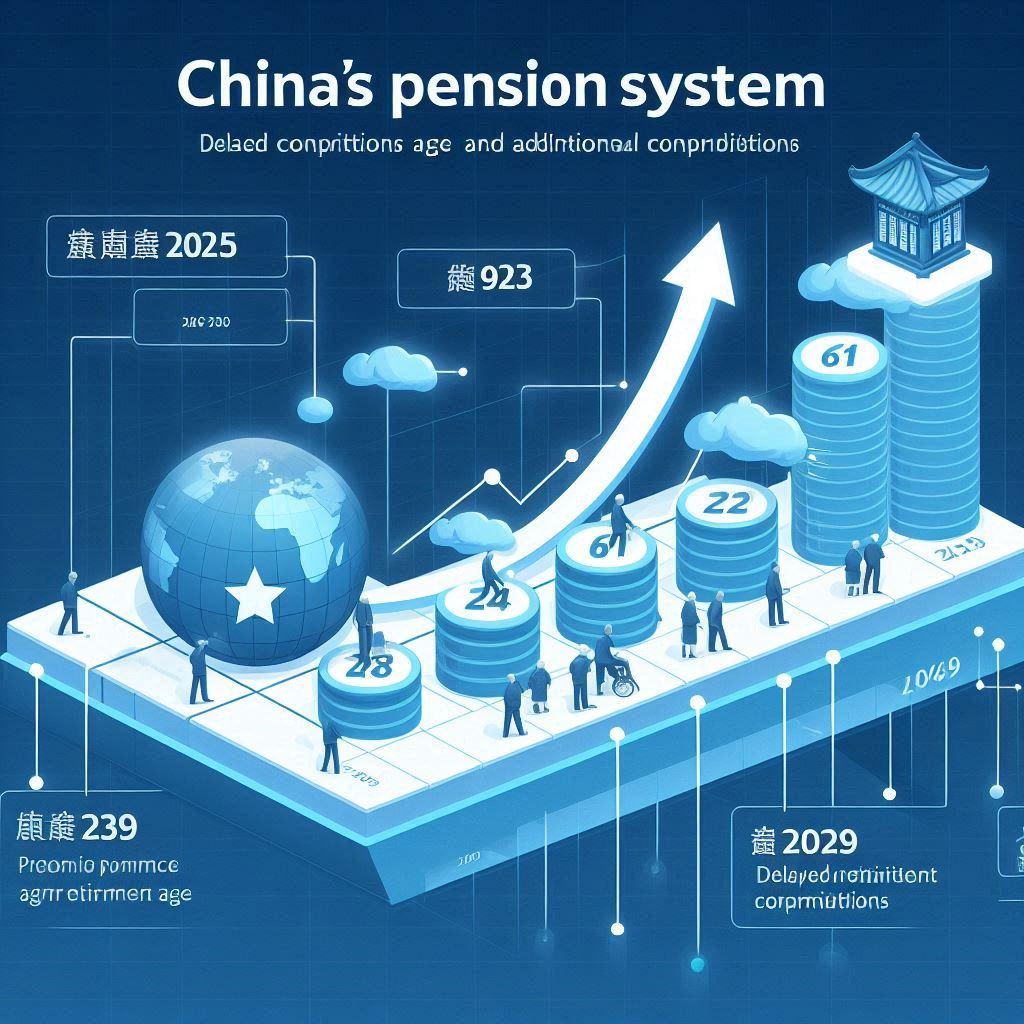Discover China’s retirement age reform and its impact on the workforce as the country grapples with aging demographics and pension challenges. Learn how the new policy affects workers and China’s economy.
China has officially raised its retirement age for the first time since the 1950s, marking a significant shift as the country grapples with an aging population and an impending pension crisis. This reform is expected to impact millions of workers and reshape the future of the labor market in China.

In this article, we’ll explore China’s retirement age policy, its effects on the workforce, and the long-term implications. If you’re curious about what’s happening with the China’s retirement age or how it may influence the global economy, keep reading.
Table of Contents
What Is the New China’s Retirement Age Policy?
As of January 1, 2025, China will begin gradually raising its retirement age for the first time in over 70 years. Under the new regulations, the statutory retirement age will increase incrementally over the next 15 years. By 2039, retirement ages in China will align more closely with global standards, as the country attempts to alleviate pressures caused by its rapidly aging population.
Here’s a breakdown of the changes:
- Women in blue-collar jobs: Retirement age will rise from 50 to 55.
- Women in white-collar jobs: Retirement age will increase from 55 to 58.
- Men in all sectors: Retirement age will move from 60 to 63.
This new policy marks a historic change from the current system, where men typically retire at 60 and women at 50 or 55, depending on their profession. Retiring before the statutory age will no longer be allowed, but individuals can delay retirement by up to three years if they choose.
Why China Is Raising Its Retirement Age
China is taking steps to raise the retirement age in response to the country’s aging population, declining labor force, and underfunded pension system. By 2040, around 402 million people, or roughly a third of China’s population, would be over 60, according to the World Health Organization. The population shift in China presents major challenges to the country’s economic growth and social welfare infrastructure.

China’s life expectancy has increased to 78.2 years, yet its pension fund is running out of money. The Chinese Academy of Social Sciences predicted that the country’s state pension fund could be depleted by 2035. This estimation was made before the economic fallout caused by the COVID-19 pandemic, which further strained government resources.
The China’s retirement age adjustment is designed to:
- Boost the Workforce: By keeping workers employed for longer, China hopes to maintain a steady flow of labor, critical for an economy that is increasingly reliant on services and technology.
- Sustain the Pension System: The policy is intended to relieve the financial burden on the pension system, which is expected to face severe shortfalls in the coming years.
- Match Global Standards: As China’s economy matures, aligning its retirement policies with other major economies has become more urgent. For example, the average retirement age in OECD countries stands at around 63-65 years.
The Impact on China’s Workforce and Economy
The China’s retirement age reform is not without its controversies. While many recognize the need for these changes, there is considerable skepticism, particularly among middle-aged workers. Critics argue that raising the retirement age could exacerbate employment challenges, particularly for older workers in physically demanding jobs and younger people seeking to enter the workforce.
According to recent reports, the youth unemployment rate in China has risen, reaching over 17% for those aged 16-24 who are not students. Many fear that extending the working years for older generations will make it even harder for younger individuals to find stable jobs.

Additionally, the policy will impact how long employees must contribute to China’s social security system. Starting in 2030, workers will be required to make 20 years of contributions to access full pension benefits, up from the current 15 years.
Long-Term Economic Effects
In the long run, China’s strategy to raise the retirement age is expected to:
- Improve Economic Stability: By keeping older workers in the labor force, China can better sustain economic growth and avoid the trap of “getting old before getting rich,” a concern among economists observing the nation’s demographic crisis.
- Develop the “Silver Economy”: As China becomes a “super-aged society,” the demand for elderly care services, healthcare, and other age-related industries is expected to rise. This shift could create new opportunities for businesses catering to the needs of the aging population.
- Address Workforce Shortages: As nearly 300 million Chinese workers are set to leave the workforce over the next decade, extending their working years may alleviate the immediate labor shortage, particularly in industries where experience is crucial.

Public Reaction and Concerns
While the government has framed the China’s retirement age increase as an essential reform, the reaction among Chinese citizens has been mixed. Many have taken to social media platforms like Weibo to express their frustration and skepticism.

Some users feel the changes are inevitable but worry about their impact on work-life balance, particularly for blue-collar workers who may not be physically able to continue working until 55 or 58.
“I expected this, but what about those of us in labor-intensive jobs? Will we still be able to work at 55?” one user commented.
Others expressed concerns over job market competitiveness, particularly for younger generations. With older workers staying in their jobs longer, it may become increasingly difficult for young people to find employment, especially in a slowing economy.
A Global Perspective on Retirement Age
China’s decision to raise the retirement age is part of a broader trend among nations grappling with aging populations. In recent years, countries like France and the United States have also faced public protests and debates over raising retirement ages.
Large-scale protests against the government’s proposal to raise the retirement age from 62 to 64 took place in France in 2023. Similarly, the U.S. has been gradually increasing the age at which citizens can access Social Security benefits, with incentives in place for those who delay retirement until 70.
While the China’s retirement age shift may appear drastic, it mirrors the reforms seen in other nations facing similar challenges with aging populations and pension funding shortages.

What Lies Ahead?
The raising of the China’s retirement age is a pivotal step in addressing the country’s long-term demographic and economic challenges. While the move has been met with some criticism, it underscores the urgency of reforming outdated systems to meet modern realities.
China’s leadership faces the difficult task of balancing the needs of its aging population with the economic imperatives of maintaining a robust workforce. The coming years will reveal how well the China’s retirement age policy meets these challenges and whether it will provide the economic stability the country desperately needs.
As China’s population continues to age, other nations will be watching closely to see how the country manages these sweeping reforms and whether they can provide a blueprint for addressing similar issues worldwide.
Explore – Taylor Swift Endorsement – A Powerful Influence on U.S. Politics







